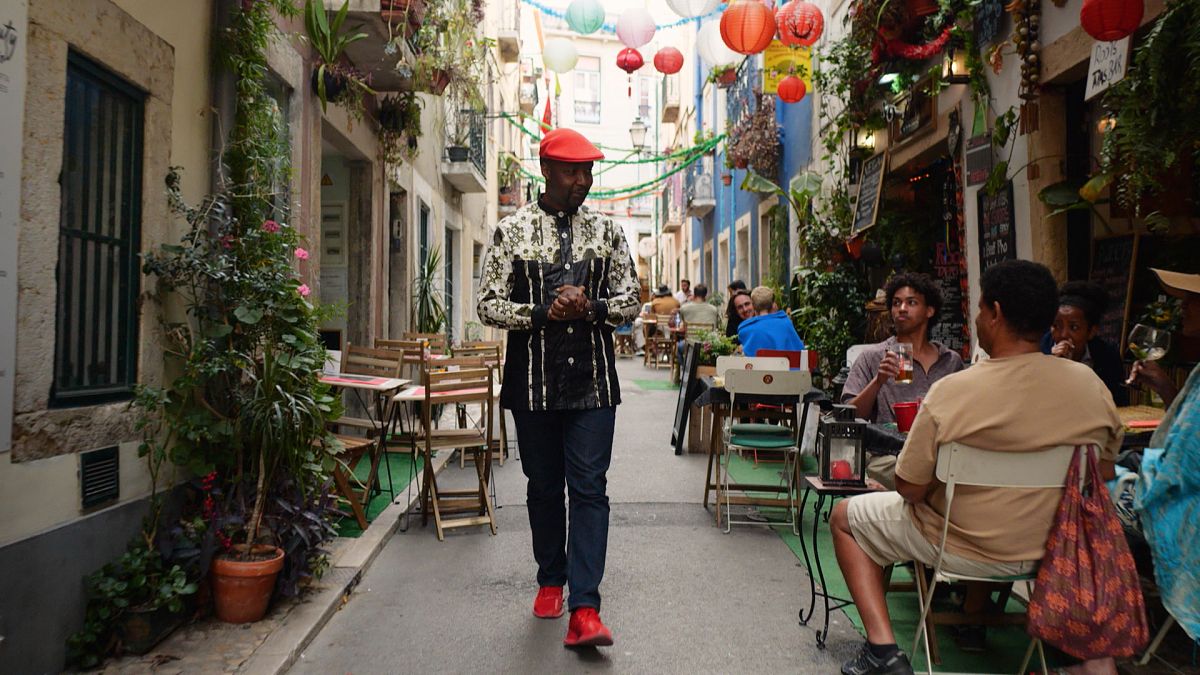There are at least 12 million people in the Americas of Angolan descent, it is estimated. In partnership with Governo de Angola
There are at least 12 million Americans in the United States of Angolan descent, it is estimated.
This creates a vast potential for tourism along the route taken by their ancestors along the Kwanza River corridor, a route that is a candidate to become a UNESCO World Heritage Site.
Slavery flourished in Angola
For millions of people who were enslaved and shipped to the Americas, the shores of Angola were the last sight of home.
Researching those traces is Afonso Vita, who has a doctorate in human geography from Portugal’s University of Coimbra. We meet him in Lisbon, a byway for many of the slaves from Angola.
"Angola is one of the African countries that lost more men, women and children during the slave trade," he says. "We have many places where we still find traces of the transatlantic traffic."
It was a business that flourished in Angola and in Portugal where we met up with Vita. He follows the path where the slaves were led to the ships. He stands in a square that served as a pillory, or pelourinho.
"Pelourinho are spaces where slaves were placed at that time of slavery. They were abused, sold. Those who behaved badly in the view of the colonist were punished," he says.
Countries across the globe benefitted from that people power.
"Africans built Europe, they built America, they even built Asia too," says Vita. "They arrived and influenced changes that are still taking place worldwide."
A global opportunity
That global link is an opportunity for tourism and remembrance today. The President of Angola, João Lourenço, visited the Museum of African American History and Culture in Washington DC last year with the Tucker family, which is one of the slave families descended from Angolan slaves. The museum tour was given by Mary Elliott, Curator of American Slavery, herself a descendant of Angolan slaves.
"African-Americans were enslaved in a nation that based its founding on liberty," said Elliott. "We were able to use genealogy and to trace their descendants. This is my grandfather. So I am honoured to be able to do this tour with you today. Because you all are connected to me."
Memory and celebration
That connection goes back to Massangano, on the Kwanza River.
"The Kwanza River was the main axis of Portuguese colonial penetration through the interior," says Emmanuel Caboco, Deputy Director of Angola's National Institute of Cultural Heritage. "The Kwanza River was also, let's say, the main point of transit of slave labour."
One estimate is that more than six million people left it for various destinations. That’s why Angola wants the Kwanza Corridor on UNESCO’s list of World Heritage Sites, making it eligible for UN funding.
At UNESCO in Paris, a former official says listing the Kwanza Corridor would be part of restoring the memory and the cultural links.
"Linking Africa to the people of the other side of the hemisphere means relinking the cultures," says Doudou Diéne, the former director of UNESCO's Department of Intercultural Dialogue. "The colonial system was a powerful system, not of political domination, but of wiping out memory, culture and identity. So memory, culture and identity has to be part of the construction of the nations now of all African countries."
It’s also why they plan a festival.
"The Biennial Festival of Encounter and Reencounter of Africanity in Angola will last 2 days," says Vita. "We will have visits, in addition to the round table, which will discuss various issues around slavery."
Combining memory and celebration. Remembering the tragedy of slavery but also the enduring contribution of millions of Africans to the world.

